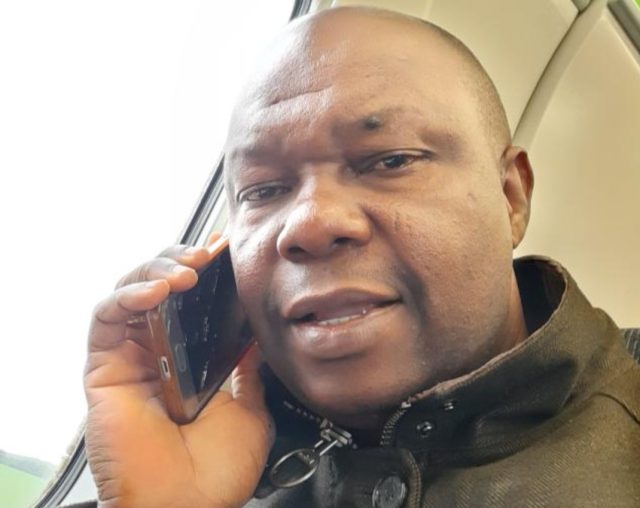
Africa is on its familiar route again. She has become the proverbial serial widow whose mourning and weeping the Yoruba express as “Iwo l’eni, iwo lana bi ekun ap’okoje“. In serial widowhood, the widow is seen as involved in matricide, until she proves otherwise. Each death of the husband courses tears down her cheeks and cries seem the only alibi of her innocence. Sudan is Africa’s most recent ground for exhibiting serial widowhood cries. Africa, like that widow, appears to have a prowess that killing her prime children and husband requires.
At the last count, 512 people have been martyred to please the god of ego in Sudan. Apart from that number that has been dispossessed of their lives, about 4,200 more have either been maimed, injured, or totally immobilised, with claims that these figures may be a far cry from the actual reality on ground. The World Health Organization (WHO) has also painted an apocryphal picture of the bloody uprising. It said the figure may be far more and that “many more” deaths are on the offing as a result of outbreaks of diseases and total breakdown of essential services.
Sudan is reminding us of the broken cistern-like bloodshed that Africa was in the 20th century. Of the lot, the Somali conflict of 1991 is remarkable. Sparked off by the ouster of dictator, Mohammed Siad Barre, this resulted in a shift in the balance of power, eventually culminating in a 20-plus-year civil war with as many as one million Somalis killed. Then, the Rwandan regicide came. In a span of four months, between April and July of 1994, just like the Holocaust, a state-sanctioned hatred and dehumanisation of an ethnic group brought to the fore by the murder of President Juvenal Habyarimana, jumpstarted a systematic and brutal genocide. This cost this great country in Africa approximately 800,000 human lives. So also was the earlier two-year war between Eritrea and Ethiopia. From May 6, 1998, when war was provoked by the military and police of the two countries who exchanged fire at their disputed border, war raged for two years and came with economic tension, a decrease in growth, and political upheaval. Liberia of Samuel Kanyon Doe, Yormie Johnson, and Charles Taylor; as well as Sierra Leone, Libya, Somalia, DRC, and others were to face theirs as well.
Sudan is back inside its blood-spilling puddle. This pre-historic site which parades ancient remnants of archaeology like the Kingdom of Kush, an ancient Nubian state, is on fire. But indeed, the Sudanese crisis isn’t strictly the subject of this piece. It is just ancillary to the discourse of Nigeria’s education system.
As the Ukrainian-Russia war revealed the underbelly of Nigerian students’ relations with the outside world, the orgy of war in Sudan is revealing yet another ugly one. As the Sudan crisis broke out, it sparked off a revelation that Nigeria has at least 10,000 students and more than five million Sudanese of Nigerian origin who are gilded in Sudan. This was brought to the fore as a result of the current conflict between the Sudanese armed forces of Abdelfattah al-Burhan and the Rapid Support Forces (RSF), a paramilitary force under the leadership of Mohamed Hamdan Dagalo.
At its usual peremptory best, Nigeria is again in a swashbuckling with death, at the expense of her citizens. With Sudanese airspace closed due to the crisis, the trapped students have only the road to travel out of the war zone and board a flight to Nigeria. After what looked like an eternity’s delay, the Nigerian government, according to Minister of Foreign Affairs, Geoffery Onyeama, said it had voted the sum of $1.2 million for the evacuation of the stranded Nigerians from the conflict-prone country. Then, the usual Nigerian malady began. Buses primed to evacuate the stranded students got stuck in the middle of the Sahara desert. Why? The bus drivers embarked on one-man riots because Nigerian officials were penny-pinching the payment for their services. The Nigerians in Diaspora Commission, NiDCOM chair, Abike Dabiri-Erewa, had earlier claimed that the sum of N150 million had been released for hiring 40 buses for the sole purpose of evacuating these stranded students to Cairo in Egypt. An almost not-dissimilar occurrence reared its head when stranded Nigerian students were to be rescued from war-torn Ukraine. So, the question, aside from the Nigerian governmental maladies at grievous moments is, why do Nigerian students keep gravitating towards Sudan’s and other “mushroom” universities when they could have studied in Nigeria? The same question was asked when it was discovered that Nigerian students were trapped in Ukraine, a Third World country like Nigeria, at the beginning of its internecine war with Russia.
That question is currently being asked severally on social media in confrontation with the share immense number of Nigerian students studying in Sudan. We may need to ask similar questions as a collective, if only as a way of bringing ourselves back to the path of sanity.
It bears repeating that Sudan is one of the most consequential countries in Africa, with a pedigree of antiquity. Located in North Africa, apart from the Democratic Republic of Congo (DRC) which shares similar size and large swathes of land, Sudan shares borders with the DRC to its southwest, Chad to the west, Egypt to the north, Eritrea to the northeast, Ethiopia to the southeast, Libya to the northwest, South Sudan to the south and the Red Sea. Until 12 years ago when it was bifurcated into two, with South Sudan going its own way, it was about the largest country in Africa. Even at that, it is still Africa’s third-largest country.
Economy-wise, Sudan used to parade one of the fastest-growing economies in the world as of 2010. With top exports that range from gold, groundnuts, other oily seeds, crude petroleum, sheep, and goats which she exports mostly to the United Arab Emirates, China, Saudi Arabia, and Italy, the most phenomenal of its economic strides is that, in 2021, Sudan was voted as the world’s biggest exporter of groundnut meal with $18.8 million exports. However, the secession of South Sudan, which harbours about 75% of Sudan’s oilfields, drove the ancient country into stagflation. This resulted in a slow-down of its GDP which fell from US$123.053 billion in 2017 to US$40.852 billion in 2018.
Like Nigeria, however, Sudan is ridden with corruption. It is perceived as one of the most corrupt countries in the world. It has a very huge hungry population and out-of-school children in the world. According to the statistics of the Global Hunger Index in 2013, the country’s indicator placed it with a value of 27.0 which favourably makes Sudan a country with an ‘Alarming Hunger Situation’ and thus rated as the fifth hungriest nation in the world.
The bulk of what Sudan flaunts today is old glory, education inclusive. Though it currently boasts around 25 and 30 universities, the state of those universities leaves a lot to be desired. Its basic instruction method of Arabic is off-putting to anyone desirous of Western-type education while its requirement of male young men to pass through a system of military service is a major setback in its consideration for schooling. During the reign of Al-Bashir, academic researchers got alienated from Sudan, with the withering of internal science funding. At this time, not less than 3,000 Sudanese researchers were said to have eloped Sudan between 2002 and 2014, so much that, by 2013, Sudan’s student-researcher ratio stood at a mere 19 -100,000 citizens, or 1/30.
Those who canvass Sudan as the place to go for foreign education argue on the basis of its affordability. Their argument is that, upon summing up the costs of tuition, housing, and living in Sudan, its education is usually cheaper than those of other countries. The universities, they argue, also offer a wide range of degree programmes ranging from sciences, humanities to professional courses like engineering and medicine. A place to go for many aspiring undergraduate and postgraduate students in the northern parts of Nigeria, the similarity of culture, shared faith practices, norms, and the Arabic it offers as the language of learning seems to be a major pull for such students. The epidemic of riots and strikes in Nigerian universities also makes the need to seek any university but Nigeria pleasant and attractive.
However, as I said earlier, the Sudanese and Ukrainian crises have offered a veritable opportunity to interrogate some of the schooling Nigerians undertake abroad. In the Sudanese case, though some of those who defend Nigerians schooling in this centuries-old country argue that historical interactions between Nigeria and Sudan should be a pull to consider the country for study, the fact remains that the University of Khartoum, which is Sudan’s best university, is ranked 2,310th in universities of the world. The University of Ibadan occupies the fifth in Africa ranking and between 401-500th in the world; same with the University of Lagos.
Sudan used to have one of the best educational institutions in the world, just like Nigeria of the immediate post-colony which was a Mecca for anyone seeking quality education. We however know that all these have vapoured out and Sudan, as well as Nigeria, have lost their educational primacy due to persistent bad governance, strife, and wars. Nigeria also used to occupy this vantage position but lack of acumen for futuristic planning has killed this goose that laid the golden egg. Sudan’s health education and medical education, in general, have become a ghost of themselves, thus making disdain for why Nigerians will gravitate towards it anything but a stereotype.
Beyond the claim of Islamophobia, the truth is that Sudan is a fecund ground for tutoring radical thoughts and where potential extremists are incubated. Yes, the West is also a fertile ground for extremism due to the perceived hypocrisy of its leaders. However, the flourishing of Sudan for such kinds of beliefs and ideological persuasions has much more gravitas than those of the West. Granted that Umar Farouk Abdulmutallab, Nigerian-born underwear-bomber, and his radicalism reached its metastasis in the West, the ground for its flowering was burrowed on the soil of Africa. Farouk had earlier attended The British School of Lome in Togo and in the 2004–05 academic year, studied at the San’a Institute for the Arabic Language in Sana’a, Yemen, where he attended lectures at Iman University.
As we seek a new Nigeria moving forward, one of the issues we must begin to shred into their basics is the rush out of Nigeria to study in “mushroom” universities, just for the sake of acquiring the golden fleece. Nigeria has descended into the abyss in education and very many other spheres but in that descent, it is still far more of worth than many of the universities of the world that our children run to. It is so absurd that many Nigerians rush to the Benin Republic and Ghana to study in universities that have less global ranking than many of Nigeria’s universities.











